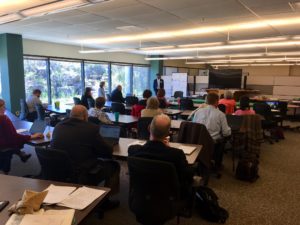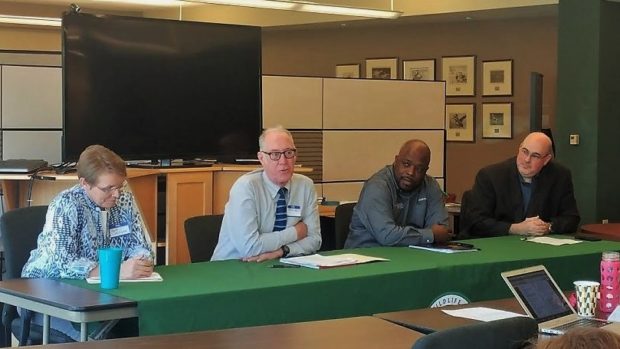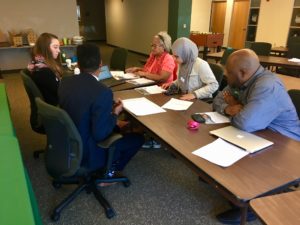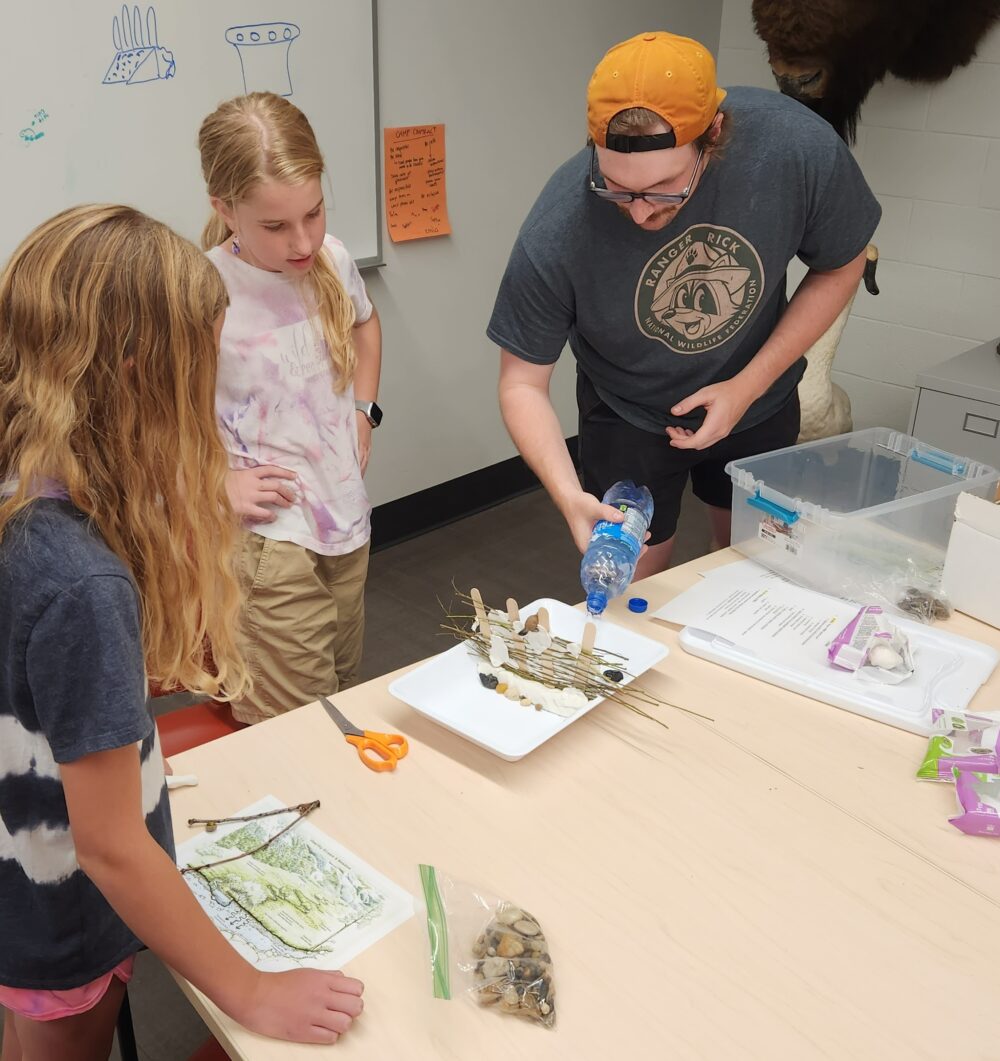We have much more to do and your continued support is needed now more than ever.
Career and Technology Education is Crucial for a Green Workforce: Symposium Recap
The National Wildlife Federation recently convened a symposium of experts in Career and Technical Education (CTE) in Washington, D.C. and Northern Virginia at its headquarters in Reston, Virginia for a full day of resource sharing, collaborating, and setting an agenda to collaborate on infusing sustainability knowledge into CTE courses and career pathways.

Attendees represented a range of stakeholder groups, from agencies (Virginia Department of Education, Washington DC Office of the State Superintendent of Education, and Northern Virginia Soil and Water Conservation District); to secondary education (Full Circle Nature School; Washington D.C., Fairfax County, and Cumberland County Public Schools); higher education (Northern Virginia Community College and University of the District of Columbia); and partner organizations (Metropolitan Washington Council of Governments and The Corps Network).
The day began with an informative opening presentation by the National Wildlife Federation’s Vice President of International Conservation and Corporate Strategies, Barbara Bramble, on the impacts from various industries and career sectors in the U.S. on natural resources and ecosystems in South America and around the world. This presentation set the stage for the day by pointing out the interrelated nature of all career sectors – particularly in reference to product supply chains – and underscoring the need for sustainability knowledge for all graduates, whether their focus is in agriculture and natural resources, business and marketing, transportation, IT, or any other field.
Kevin Coyle, NWF’s education vice president and founder of its green CTE initiative, moderated a panel focusing on where the jobs for sustainability are in the Washington Metro and Northern Virginia regions and what skills students will need to secure those. The presenters were:
- Angela Whittaker, School Director and Sustainability Instructor at Full Circle Nature School
- Clifton Martin, National Academy Foundation (NAF) Director of Engineering at H.D. Woodson High School (D.C. Public Schools)
- Chad Maclin, State Director of Career and Technical Education at the D.C. Office of State Superintendent of Education
- Stephen Walz, Director of Environmental Programs with the Metropolitan Washington Council of Governments

The panel, from left to right: Angela Whittaker, Stephen Walz, Clifton Martin, and Chad Maclin
Noting the impact that climate change will have on all young people as they graduate, enter the workforce, establish themselves, and support their families and communities, Ms. Whittaker’s presentation underscored the need for all students to think through a sustainability and environmental awareness lens. Mr. Martin illustrated how the NAF framework and the Project Lead the Way curriculum enhances CTE programming at Woodson High School, and Mr. Maclin described project-based initiatives in CTE programs throughout Washington, D.C., such as giving students the opportunity to run a school-based green business, thereby learning soft skills like teamwork and problem solving. Mr. Walz highlighted many of the specific local and regional organizations and agencies working inside of and at the periphery of CTE.

Leaders evaluated the specific student competencies, career pathway stepping stones, and the opportunities and obstacles related to green CTE education. A number of common themes emerged, from the need to instill entrepreneurial and agile mindsets in today’s students to deal with tomorrow’s uncertainties, to the challenges of getting everyone on board and collaborating – including industry leaders, students, all levels of government, and local community associations. With its long history and extensive programming in K-12, community colleges, universities, and local communities across the country, the National Wildlife Federation is dedicated to continuing to bring these and other stakeholders to the table to prepare our young people for the green jobs that they desire.






















